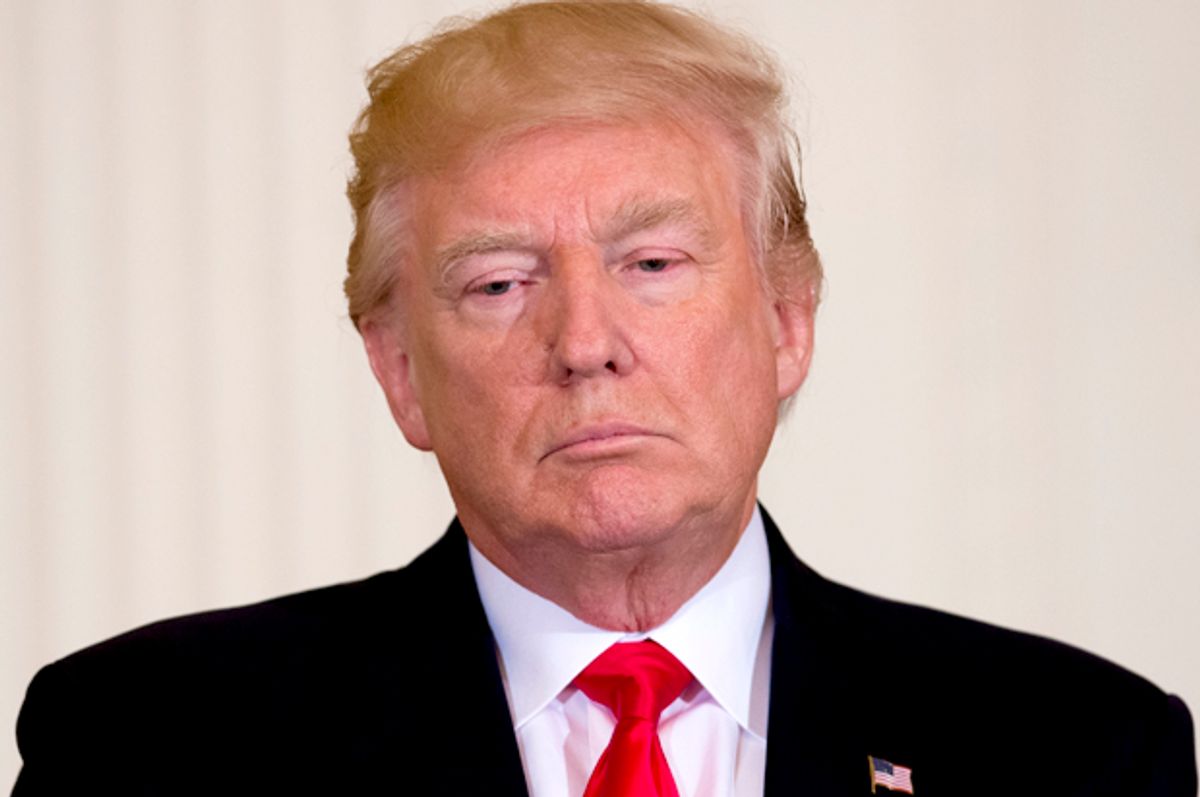It’s simple curiosity, that’s all. Or is it?
President Donald Trump has asked his aides and lawyers about the extent of his power to grant presidential pardons to aides, to family members, and even to himself.
On Thursday the Washington Post reported that a source close to the president said lawyers are taking Trump’s request seriously enough to look into it.
“This is not in the context of, ‘I can’t wait to pardon myself,’” a close adviser told Post, saying the president is merely curious about his options should an ongoing independent investigation into Russian election-meddling lead to criminal charges.
The request to examine the limits of a president’s ability to forgive crimes comes a week after Donald Trump, Jr., revealed that he met with Russians in June 2016. The Russian sources said they had information that could help his father win the presidency. Trump’s son-in-law Jared Kushner and then campaign manager Paul Manafort also attended the meeting.
Though the meeting reportedly yielded no damaging information against Democratic candidate Hillary Clinton, critics have said the president’s son should have followed protocol and reported the invitation to the FBI.
While the president does wield the authority to pardon White House aides and even family members he does not have the power to pardon himself, according to memos written by President Richard Nixon’s legal team in 1974 during the Watergate scandal; stated plainly: “the President cannot pardon himself.”
Trump could seek a pardon, but it would require a complicated process. According to Nixon’s legal team, a president could come up with a reason to temporarily step down under the terms of the Twenty-Fifth Amendment of the Constitution, allowing the vice president to step in as acting president to issue the pardon.
“Thereafter the president could either resign or resume the duties of his office,” the Nixon era memo reads.
But there’s a big difference between what is technically legal and what is politically sound, according to Steve Vladeck, a professor of national security law at the University of Texas School of Law.
If Trump were to begin dishing out pardons it could likely implode his support among many Republicans. Should Trump pursue a pardon for himself, Vice President Mike Pence — who would become acting president in order to issue the pardon — could himself face immense pressure not to pardon Trump. Another problem: Anyone Trump pardons could still be compelled to testify against him without the protection of the Fifth Amendment right against self-incrimination.
So the short answer to appeasing the president’s curiosity about his pardoning powers: technically speaking, he has a lot of pardoning authority. But the political costs would be crippling to him and to his party.



Shares